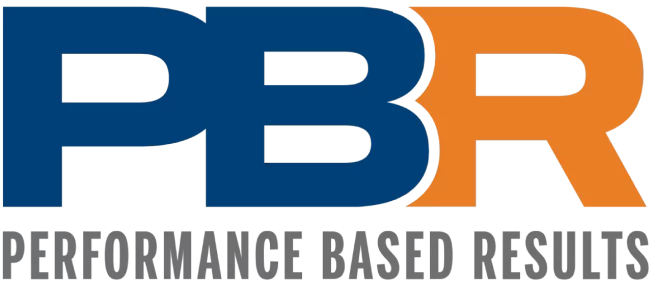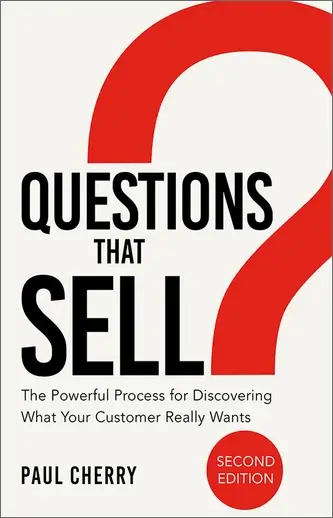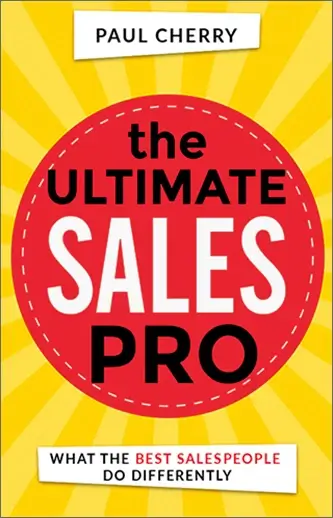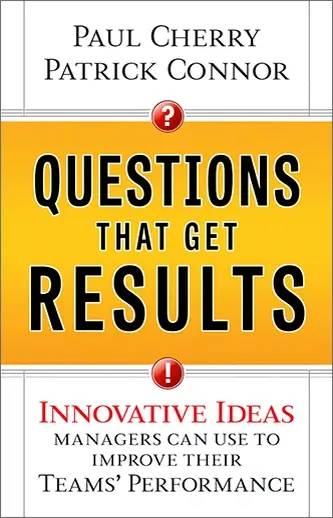In the constantly shifting world of sales, teams frequently face a range of obstacles that can hinder their effectiveness and overall success. Understanding these obstacles and implementing effective strategies is crucial to overcoming them and achieving desired results.
This ultimate guide delves into the most prevalent sales challenges and offers practical solutions to tackle them with confidence. One significant challenge that sales teams frequently face is generating qualified leads.
In a crowded marketplace, capturing the attention of potential clients can feel like an uphill battle. The key to overcoming this hurdle lies in precise audience segmentation and creating relevant, engaging content.
Investing in digital marketing strategies, such as targeted email campaigns and tailored advertisements, can significantly enhance lead quality and streamline your sales funnel.
Common Sales Challenges and Their Impact
One of the most prevalent issues in sales is lead quality. Generating leads is only part of the equation. Ensuring these leads are truly valuable is another matter. Poor-quality leads can result in wasted time and resources, diverting focus from high-potential opportunities.
This inefficiency strains the sales team and impedes overall revenue growth. To combat this, focusing on precise targeting and nurturing leads through personalized engagement can enhance lead quality and conversion rates.
Another significant challenge is sales cycle length. An extended sales cycle can delay revenue realization and strain resources. Complex sales processes often result from a lack of alignment between sales and marketing or inadequate customer understanding.
Difficulty in Generating Leads
Generating high-quality leads is a fundamental yet often challenging aspect of sales. For many businesses, this task can seem like an intricate puzzle, with pieces constantly shifting.
One of the primary reasons for lead generation difficulties is the saturation of digital channels. In today’s market, potential customers are bombarded with advertisements, emails, and social media posts.
Standing out amidst this noise requires more than just generic outreach; it demands a thoughtful strategy. Crafting personalized and relevant content that resonates with specific segments of your target audience is crucial.
This can be achieved by leveraging data analytics to understand customer behavior and preferences and then tailoring your messaging accordingly.
By leveraging data analytics to understand customer behavior and preferences and then tailoring your messaging accordingly, you can significantly improve the quality of your leads and stand out in a crowded market.
Managing Long Sales Cycles
One of the core challenges with long sales cycles is maintaining momentum throughout the duration. Prospects may move slowly through the decision-making process, and keeping their interest alive can be daunting.
Regular, thoughtful communication is key. Employing a well-structured follow-up system ensures that your interactions remain relevant and timely. Personalized touchpoints, such as tailored updates and value-driven content, help nurture the relationship and keep your offering top-of-mind.
Another significant aspect is effective pipeline management. In long sales cycles, having a clear and organized pipeline is crucial to track progress and identify potential roadblocks. Implementing robust Customer Relationship Management (CRM) tools allows you to monitor interactions, schedule follow-ups, and manage the flow of prospects efficiently.
Handling Price Objections
Mastering the art of navigating price objections involves empathy, strategic communication, and a clear understanding of the value proposition. Price objections frequently reflect deeper worries, such as perceived value or budget constraints.
Begin by actively listening to your client’s concerns and asking clarifying questions. This demonstrates empathy and provides you with the information needed to tailor your response effectively. A successful sales approach involves understanding these concerns deeply and framing your solution around them.
Once you have a clear grasp of their concerns, focus on highlighting the value and benefits of your product or service. Instead of defending the price, emphasize how your offering addresses the client’s specific needs and how it stands out from the competition.
Illustrate the unique advantages and long-term benefits, such as cost savings, improved efficiency, or enhanced performance, to justify the investment.
Strategies to Overcome Sales Challenges
Effective strategies to overcome these obstacles are essential for success. Key approaches include refining your targeting to attract high-quality leads, enhancing communication to keep prospects engaged, and implementing robust pipeline management techniques.
Additionally, fostering strong relationships and staying adaptable to market changes can significantly improve your ability to tackle sales difficulties. Embracing these strategies not only addresses immediate challenges but also builds a foundation for sustained growth and achievement in a competitive landscape.
Leveraging Technology for Lead Generation
In the quest to overcome common sales challenges, technology stands out as a transformative ally, especially regarding lead generation. Embracing cutting-edge tools and solutions can significantly enhance your ability to attract and convert high-quality leads, thereby addressing some of the most persistent hurdles in sales.
One of the most effective strategies is to utilize Customer Relationship Management (CRM) systems. Modern CRM platforms are more than just databases. They are sophisticated engines that analyze customer interactions, track sales activities, and manage lead pipelines.
By leveraging these systems, sales teams can gain valuable insights into customer behavior, personalize outreach efforts, and streamline follow-ups, making lead management more efficient and targeted.
Improving Sales Cycle Efficiency
Fine-tuning the lead qualification process is a fundamental strategy for boosting sales cycle efficiency. Identifying and prioritizing high-quality leads early in the sales cycle helps ensure that sales efforts are focused on prospects with the greatest potential.
Implementing a robust lead scoring system based on factors such as engagement level and fit with buyer personas can significantly improve lead qualification accuracy and reduce time spent on less promising opportunities.
Another vital component is streamlining communication. Clear, timely, and effective communication between sales teams and prospects helps move deals forward smoothly.
Mastering Negotiation Tactics
Negotiation is a pivotal skill in overcoming sales challenges, as it often determines whether a deal will close successfully or falter. Mastering effective negotiation tactics can transform a challenging sales encounter into a mutually beneficial agreement, paving the way for stronger business relationships and enhanced revenue.
Building rapport and trust is essential for a productive negotiation. Establishing a positive relationship with the other party helps create a more open and cooperative dialogue. Techniques such as active listening, showing empathy, and finding common ground can enhance rapport and make it easier to reach a favorable agreement.
Preparing flexible solutions can also significantly improve negotiation outcomes. While it’s important to have a clear idea of your objectives, being open to alternative solutions and creative compromises can help in finding mutually agreeable terms.
Advanced Techniques for Sales Success
One advanced technique is data-driven decision-making. By harnessing the power of data analytics, you can gain deep insights into customer behavior, market trends, and sales performance.
Utilizing these insights lets you make informed decisions about targeting, messaging, and resource allocation. Implementing tools such as predictive analytics and customer segmentation can refine your approach and increase the precision of your sales efforts.
Building Stronger Relationships
Building stronger is fundamental to overcoming challenges and driving long-term success. Cultivating deep, meaningful connections with clients and prospects can transform sales dynamics, leading to enhanced trust, increased loyalty, and, ultimately, better sales outcomes.
The first step in fostering stronger relationships is prioritizing genuine engagement. Move beyond transactional interactions by investing time in understanding your client’s unique needs, challenges, and aspirations.
Active listening and thoughtful questioning during conversations reveal valuable insights that allow you to tailor your solutions more effectively. This personalized approach demonstrates a commitment to addressing their specific concerns and helps build a foundation of trust.
Continuous Learning and Adaptation
Continuous learning and adaptation are essential strategies for overcoming persistent challenges and driving sustained success. The ability to stay informed, evolve strategies, and adapt to new circumstances can significantly enhance a sales team’s performance and resilience. Commitment to ongoing education is the cornerstone of this approach.
The sales environment is dynamic, with new tools, techniques, and market trends emerging regularly. By investing in regular training and professional development, sales professionals can stay ahead of these changes and refine their skills.
Whether through workshops, online courses, or industry conferences, continuous education ensures that sales teams are equipped with the latest knowledge and best practices. Embracing feedback is another crucial element.
Constructive criticism from clients, colleagues, and mentors provides valuable insights into areas for improvement.
Utilizing Data-Driven Insights
In the quest to overcome sales challenges, leveraging data-driven insights stands out as a transformative strategy. The wealth of information available today can guide decision-making, optimize sales processes, and ultimately enhance performance.
Embracing data provides actionable intelligence that can drive more effective sales strategies. Understanding customer behavior is one of the primary benefits of data-driven insights.
By analyzing data on customer interactions, purchase history, and engagement patterns, sales teams can gain a deeper understanding of their target audience. This knowledge allows for the creation of highly personalized and relevant sales approaches.
Tailoring your messaging and offers to align with specific customer preferences increases the likelihood of successful engagements and conversions.
Managing Team Dynamics and Performance
Effectively managing team dynamics and performance is essential for overcoming sales challenges and driving success. A harmonious and high-performing sales team not only achieves targets but also adapts more fluidly to market shifts and organizational changes.
By focusing on both individual and collective dynamics, leaders can cultivate an environment that fosters motivation, collaboration, and exceptional performance.
Motivating Your Sales Team
Motivating a sales team is a cornerstone of effective management and a vital aspect of optimizing team dynamics and performance. When sales professionals are engaged and driven, they are more likely to exceed targets, foster positive team interactions, and contribute to a thriving organizational culture.
Here are several strategies to inspire and energize your sales team. Understanding individual drivers is the first step in tailoring motivation strategies.
Each team member is motivated by different factors—some may seek financial incentives, while others are driven by recognition or professional growth. Engaging in one-on-one conversations to uncover these individual motivators allows you to customize your approach.
Setting Realistic Targets and Goals
When goals are thoughtfully crafted and achievable, they foster a positive and motivated team environment. Setting these targets can transform aspirations into actionable steps, ensuring alignment and enhancing overall performance.
Begin by defining clear and attainable goals. Targets must be specific and aligned with both individual capabilities and team objectives. Goals should be challenging enough to inspire effort but not so ambitious that they become overwhelming.
Implementing the SMART criteria—specific, Measurable, Achievable, Relevant, and Time-bound—provides a structured framework that clarifies expectations and facilitates focused efforts.
This approach helps in breaking down larger objectives into manageable tasks, making progress more visible and achievable.
FAQ
What are the most common sales challenges?
Sales teams often face various challenges that can hinder performance and impact revenue growth. One of the most common obstacles is the ability to differentiate products or services in a crowded market effectively.
With numerous competitors offering similar solutions, sales professionals must be equipped with the right strategies to clearly articulate what makes their offerings unique and valuable to prospective clients.
Another frequent challenge is building and maintaining strong relationships with customers. While generating leads and closing deals is important, fostering long-term client relationships requires consistent follow-up, excellent communication, and a deep understanding of the customer’s evolving needs.
Sales professionals often struggle to strike the right balance between nurturing existing relationships and pursuing new opportunities.
How can technology help in overcoming sales challenges?
One key area where technology excels is in helping sales teams manage and track their prospects and customers more efficiently. Customer relationship management (CRM) systems, for example, enable teams to keep detailed records of interactions, preferences, and opportunities, ensuring that no lead is overlooked and that every customer receives personalized attention.
Automation is another powerful tool for streamlining sales processes. By automating follow-up emails and scheduling reminders for important tasks, sales professionals can focus more on high-value activities rather than repetitive, time-consuming administrative duties.
Data analytics also offers immense value in overcoming sales challenges. With the ability to track performance metrics, identify trends, and forecast future sales, teams can make informed decisions that lead to better outcomes.
What is the best way to handle price objections?
One of the first steps in overcoming a price objection is to listen carefully and acknowledge the customer’s concerns. It’s important to validate their hesitation, showing empathy and understanding.
Often, price objections arise from a lack of clarity on the value your product or service provides. By taking the time to ask questions and uncover the real reason behind the objection, sales professionals can tailor their responses more effectively.
The next step is to shift the conversation from price to value. Instead of focusing on the cost, highlight the benefits, features, and long-term outcomes of your solution.
Emphasize how it addresses the specific pain points or challenges the customer is facing and how it can positively impact their business or personal goals. When customers see the tangible benefits and the return on investment, they’re more likely to view the price as justified.
How important is team management in sales success?
A well-managed sales team is more likely to reach its goals, maintain high levels of motivation, and create a collaborative environment that fosters innovation and continuous improvement.
Effective team management begins with clear communication. Sales leaders must ensure that goals, expectations, and performance metrics are well-defined and understood by every team member.
Regular check-ins, constructive feedback, and open channels of communication help create an environment where issues can be addressed quickly and successes can be celebrated. This level of engagement keeps the team focused and accountable, driving performance.
Motivation is another crucial aspect of team management. A strong leader knows how to inspire their team, not only through incentives but by fostering a sense of purpose and belonging. When salespeople feel valued and part of a cohesive unit, their productivity, and commitment to success increase.
Conclusion
Sales professionals face a variety of challenges that can hinder their performance and impact business growth. Among the top challenges are handling objections, maintaining a steady pipeline of leads, and navigating long sales cycles. Each of these issues can slow down progress, but they can be successfully managed with the right strategies.
In conclusion, while sales challenges are inevitable, they can be overcome with the right mindset and tools. By confidently addressing objections, maintaining a healthy pipeline, and effectively managing long sales cycles, teams can improve their performance and achieve consistent success.
At PBResults, we help sales teams navigate these obstacles with proven strategies that lead to long-term growth and results.






